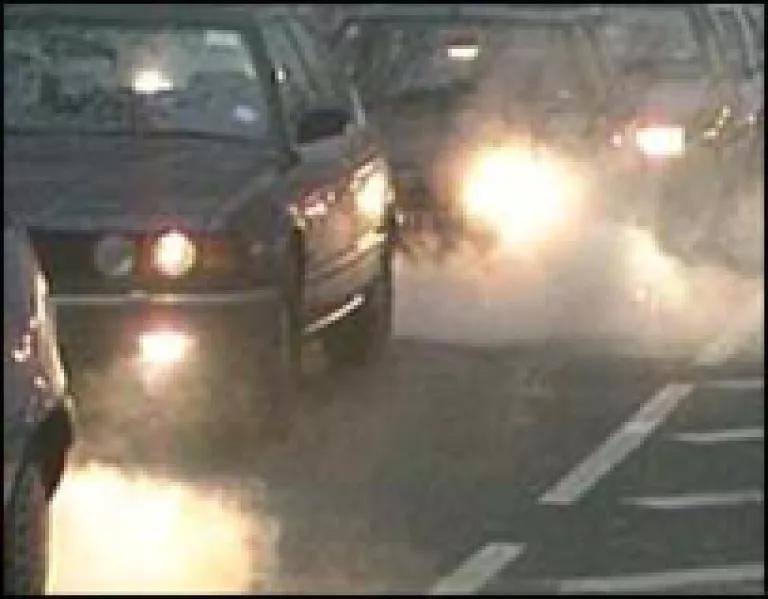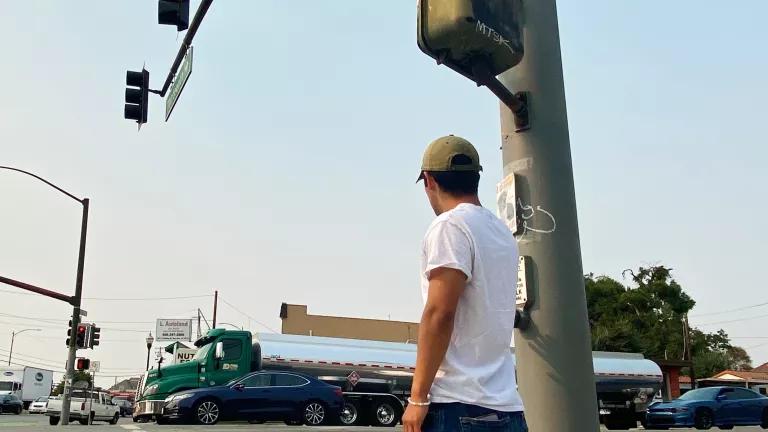A broad group of citizens and other stakeholders are calling on the U.S. EPA to act now to reduce smog pollution caused by cars and light trucks. In Philadelphia on April 24th, EPA heard resounding support as it began collecting comments on recently proposed federal standards that will clean up gasoline and tighten emissions requirements for vehicles.
The strong support for the so-called “Tier 3” standards is nearly unanimous. Only the oil industry opposes them. Using tired, misleading arguments, oil industry representatives claim that the clean air benefits from the rule are not worth the cost. But scores of citizens and other stakeholders say the cost to clean up gasoline—estimated at less than a penny per gallon—is well worth saving lives and protecting our children from respiratory illness induced by air pollution.
Moving testimony by mothers from the Moms Clean Air Force reminds EPA of the intangible value of preventing a child from having to suffer an asthma attack. One mom describes how incidences of respiratory flare-ups in her kids were reduced from one to two per month to one to two per year by moving farther away from a major highway its associated vehicle pollution. Physicians and respiratory care professionals are also urging swift action to protect our most vulnerable populations from dirty air.
The EPA has estimated that the annual health benefits of the Tier 3 standards will be as much as $23 billion by 2030, far exceeding the estimated $3.4 billion in total cost by a factor of seven.
The Oil Industry Puts Profits Ahead of Public Health
As I pointed out in my testimony, the oil industry not only ignores the huge net benefits to public health but also inflates the costs of cleaning up gasoline by removing sulfur. As my colleagues Andy Stevenson and Roland Hwang describe in their blogs (here and here), the oil industry assumes a huge profit that implies an astronomical rate of return of 180 to 340 percent on investments in cleaning up fuel refining. The oil industry’s lobbying association, the American Petroleum Institute, claims Tier 3 will cost consumers 6 to 9 cents per gallon at the pump. In reality, with average costs less than a penny a gallon, such a price hike results in $4 to $8 billion in additional profits for API’s members each year.
Testimony from a representative of Mathpro Inc. petroleum refining consultants disputes the API costs and validates the EPA estimates with their own analysis supported by the International Council on Clean Transportation.
Businesses and States Support the Standards
According to testimony by engineers from Johnson Matthey and Corning, companies that make automobile exhaust catalysts, removing sulfur from gasoline is critical to reducing pollution. Lowering gasoline sulfur to 10 parts per million makes catalysts in the current vehicles on the road more effective and immediately reduces smog-forming nitrogen oxides and other pollutants. Lower sulfur levels also allow auto engineers to optimize the design of future cars to meet more stringent emissions standards.

To efficiently promote innovation and gain greater certainty of fuel quality, automakers Honda, General Motors and Mercedes Benz along with the Alliance of Automotive Manufacturers and Global Automakers are calling on EPA to move ahead with the Tier 3 standards.that the group knows of “no other strategy that can achieve such substantial, immediate and cost-effective reductions in air pollution as Tier 3.”
A representative from the Maryland Department of Environmental Protection, who testified yesterday along with colleagues from Massachusetts and New York, makes it clear that pollution reductions are needed in all states. Although Maryland has adopted California’s clean car program, much of the state’s smog issues come from pollution originating outside the state. Today, Maryland citizens are subject to some of the worst smog pollution east of the Mississippi River. Atmospheric nitrogen deposition from motor vehicle exhaust is also frustrating state efforts to restore the Chesapeake Bay, which is essential to both the ecological and economic health of the state.
Tell the Obama Administration to Stand Up to Big Oil and Finalize Cleaner Gasoline and Vehicle Standards
The Tier 3 standards are a part of a solution to a problem that we know must be addressed. Over one hundred million Americans are exposed to unhealthy air and live in areas that fail to attain one or more health-based ambient air quality standards. The Tier 3 standards will help us all breathe easier, prevent sick days from work and school and save lives.
It’s time for the U.S. refiners to take the lead in clean fuels. They know how to do it. The oil industry already produces low sulfur gasoline for California, Japan and countries across Europe.
The five largest oil companies made $118 billion in profits last year and they have accumulated enormous wealth. Big Oil also takes home $8 billion in public subsidies each year. By cleaning up gasoline, the oil industry can put public health ahead of padding their profits and be part of solution rather than part of the problem.
Lend your voice to the broad base of support for cleaner gasoline, cleaner vehicles and cleaner air. Click here to tell the EPA to finalize the Tier 3 standards by the end of this year.




